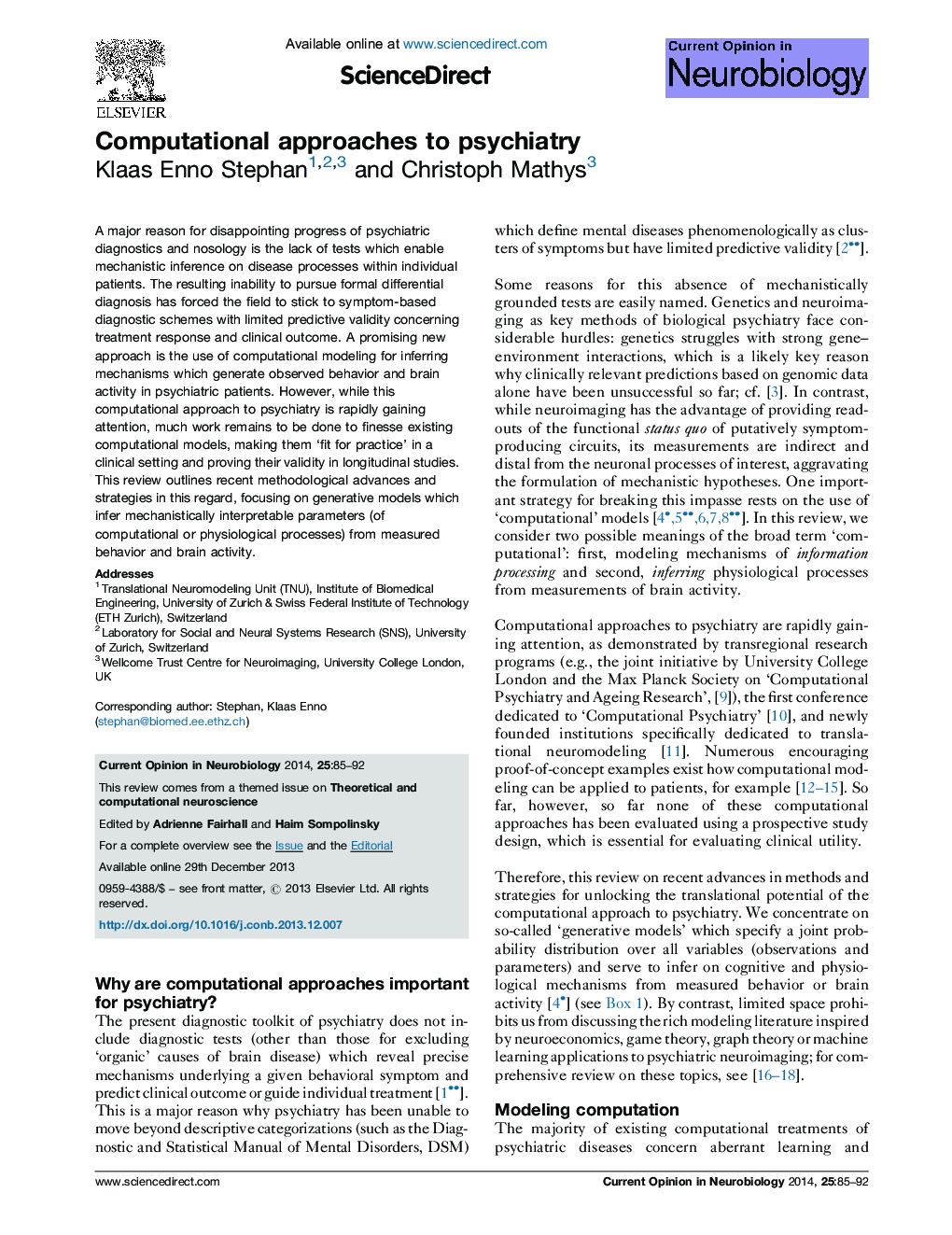| Article ID | Journal | Published Year | Pages | File Type |
|---|---|---|---|---|
| 6266541 | Current Opinion in Neurobiology | 2014 | 8 Pages |
â¢We summarize recent progress in computational and physiological models.â¢These advances provide a basis for future diagnostic applications in psychiatry.â¢A key goal is the development of 'computational assays'.â¢Such computational assays could aid treatment predictions and subgroup detection.â¢Longitudinal studies are critical for validation of any proposed model.
A major reason for disappointing progress of psychiatric diagnostics and nosology is the lack of tests which enable mechanistic inference on disease processes within individual patients. The resulting inability to pursue formal differential diagnosis has forced the field to stick to symptom-based diagnostic schemes with limited predictive validity concerning treatment response and clinical outcome. A promising new approach is the use of computational modeling for inferring mechanisms which generate observed behavior and brain activity in psychiatric patients. However, while this computational approach to psychiatry is rapidly gaining attention, much work remains to be done to finesse existing computational models, making them 'fit for practice' in a clinical setting and proving their validity in longitudinal studies. This review outlines recent methodological advances and strategies in this regard, focusing on generative models which infer mechanistically interpretable parameters (of computational or physiological processes) from measured behavior and brain activity.
